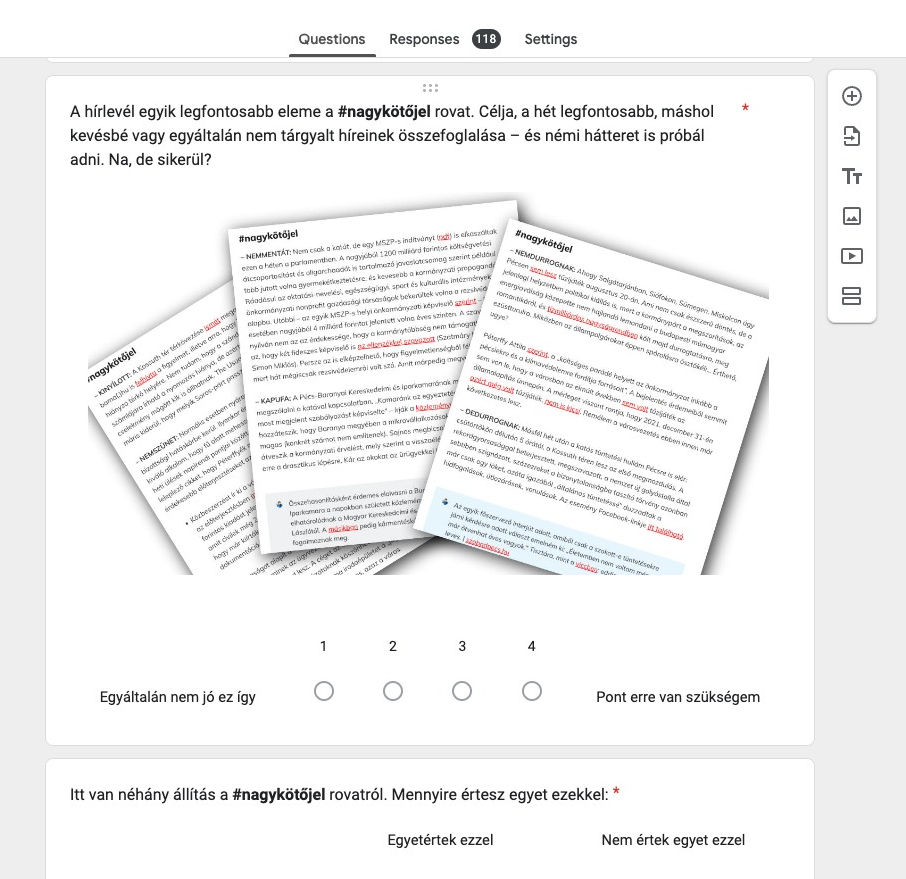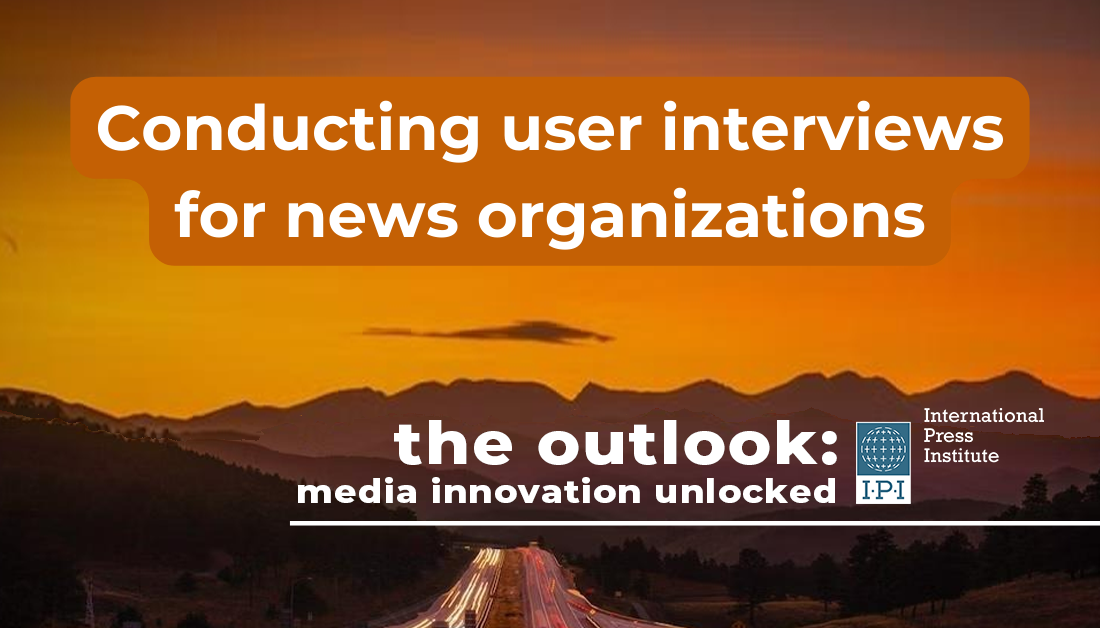This text comes from IPI’s newsletter The Outlook. Click here to sign up to receive future editions direct to your inbox.
This is The Outlook, IPI’s media innovation newsletter, where we take a look at tools and strategies for innovation, and learn from newsrooms that are implementing them.
In this newsletter we write about developing audience-first strategies, designed for news organizations to meet user needs. This week we are focusing on how to know what those needs are, by asking the people who know best: your users.
The challenge: Identifying the needs you are and aren’t meeting
Hungarian journalist Ervin Gűth was part of IPI’s New Media Incubator to refine audience engagement for his editorial local newsletter, Mecseki Müzli.
The goal for Mecseki Müzli is to provide easily digestible summaries of the need-to-know information for the local community in Pécs, Hungary.
The newsletter was already financially sustainable when Gűth joined the incubator, so the question was how to continue steady growth and take the project to the next level. He decided to carry out user interviews to get a more detailed understanding of how current readers were interacting with the newsletter and what they might be missing from it.
The solution: Ask the right questions
- Clarify your goal for the research and understand who you want to speak to. In the case of Mecseki Müzli, they chose to speak to the people who are already loyal to the newsletter, to help identify new topics to cover, and to better understand this group’s news consumption behaviour. If you’re focusing on reaching a totally new audience group, you’ll want to speak to members of that community. (The Membership Puzzle Project recommends speaking to at least seven people to identify patterns.)
- Design your questions carefully. Think about your user’s point of view. They may not be able to tell you if they want a news outlet that published five stories a day or 10, but they can tell you when they read the news, what frustrates them about the news, and what makes them engage with your product. Gűth says it was these “emotional” questions about news which elicited the strongest insights.
- Offer users an incentive. The Mecseki Müzli team had already been carrying out regular surveys of readers, but including a prize draw for a voucher increased the response rate from around 10% to around 20%.
- Follow up with more targeted questions. Gűth and his team invited users to provide their email address or phone number for a longer follow-up interview. These interviews were flexible, with Gűth encouraging his team to be guided by the responses they received.


The answers that the Mecseki Müzli team received helped them clarify the strategy, for example by identifying under-reported topics (like the local public transportation system) and writing longform articles based on reader suggestions.
Importantly, it helped them decide which directions not to take. The team had been considering launching new news products, but the interviewees were enthusiastic about the existing value proposition: all the news they needed in one weekly email. So the team decided to continue refining this product rather than create new ones.
News from IPI’s Media Sustainability Team
There is just one month to go until the IPI World Congress and Media Innovation Festival. Check out the programme online and register to join us in Sarajevo in May.
Sessions in the Media Innovation Festival track will feature expert speakers from organizations such as Rappler, JournalismAI, InfoAmazonia, Documented NY and Maldita, addressing questions such as:
- How do journalism leaders find new ways forward in the face of concurrent crises?
- How can we fund time- and resource-intensive investigative journalism?
- How can you make AI work for your media organization?
- How can we leverage technology to build trust with our audience?
Funding opportunities for media
- There are two open calls from IJ4EU (run by IPI and partners) to support freelancers and cross-border investigative teams in Europe: the Freelancer Support Scheme, offering grants of up to €20,000, and the Investigation Support Scheme, offering grants of up to €50,000. The deadline for both is March 31.
- Small media outlets in Europe can apply to become members of the SoJo Europe cohort managed by JournalismFund. Joining the cohort means access to training, mentoring and cross-border collaboration, plus the opportunity to apply for cohort-only grants of up to €40,000 per newsroom for for cross-border, solutions-oriented, and investigative reporting. The deadline is April 4.
- The International Women’s Media Foundation is accepting applications for the Elizabeth Neuffer Fellowship, a six-month fellowship focused on human rights and social justice issues, where the successful applicant spends time attending university courses, gaining newsroom experience, and receives a monthly stipend plus travel and housing expenses. It is open to women and non-binary journalists from any country, with at least three years’ full-time journalism experience and fluency in English. The deadline is April 21.
- The European Media and Information Fund has three open calls for projects supporting media and information literacy, research for a transparent information ecosystem, or investigations into disinformation dynamics in Europe (defined as the EU, EFTA and the UK). The deadline for all three calls is April 29.

